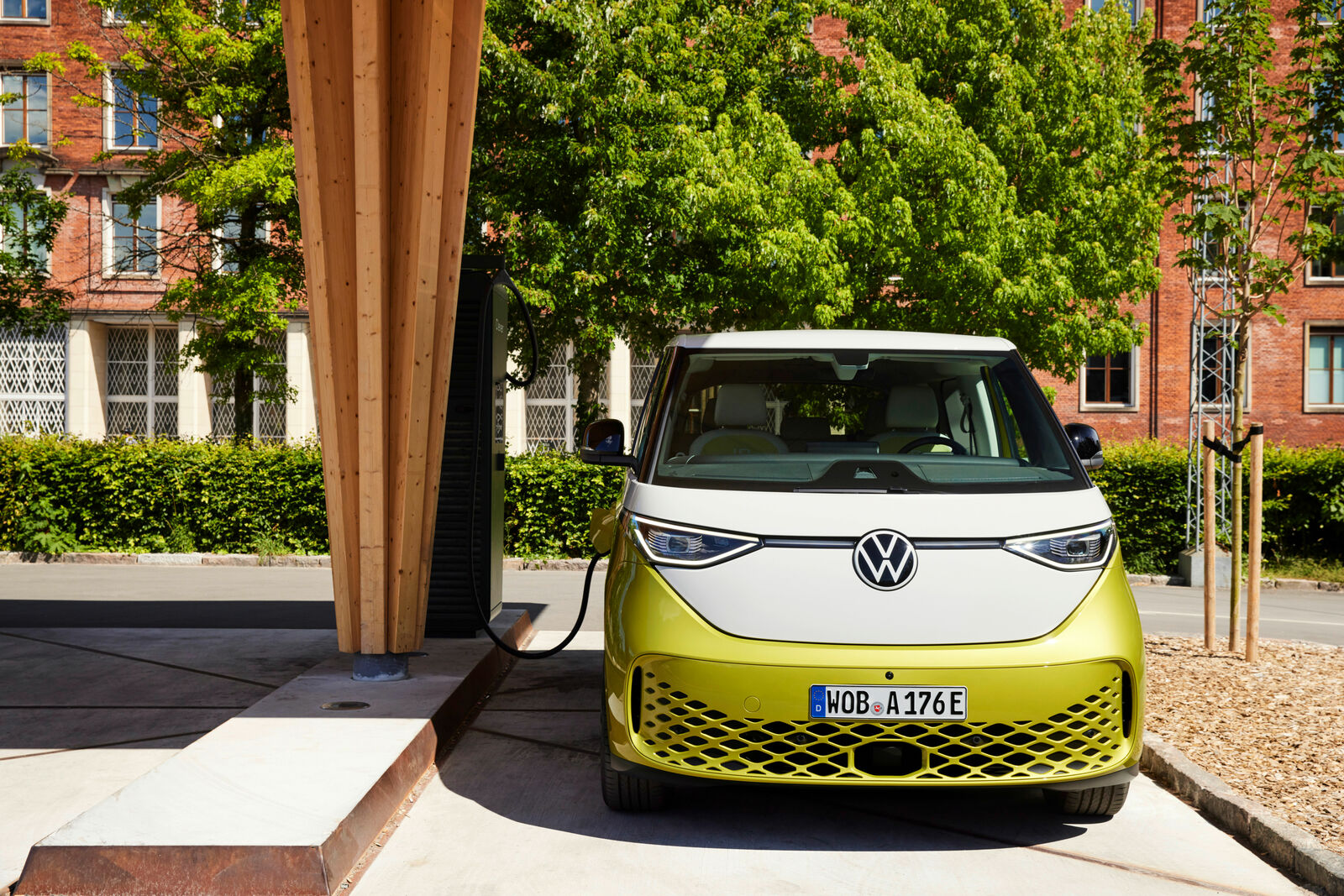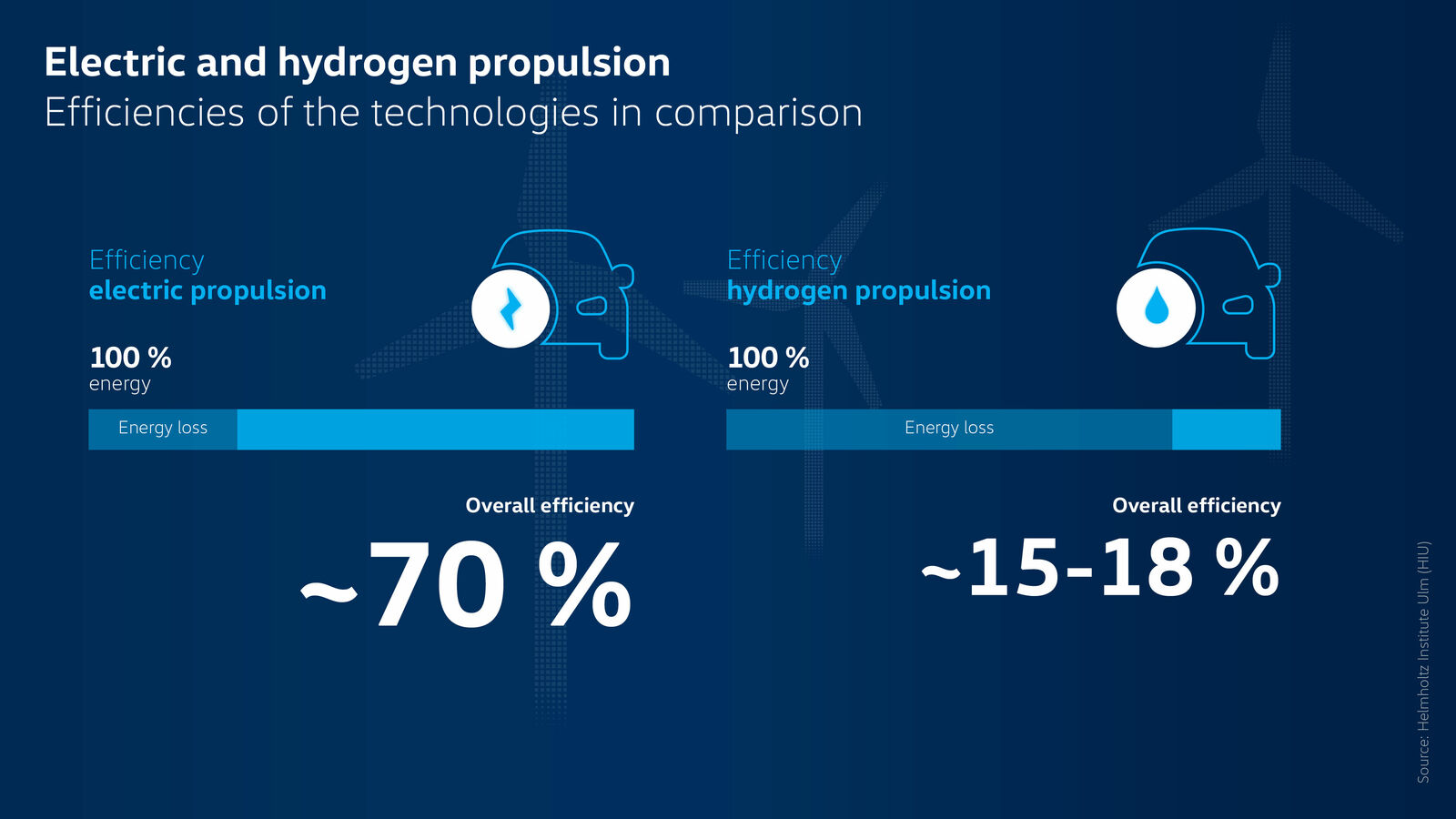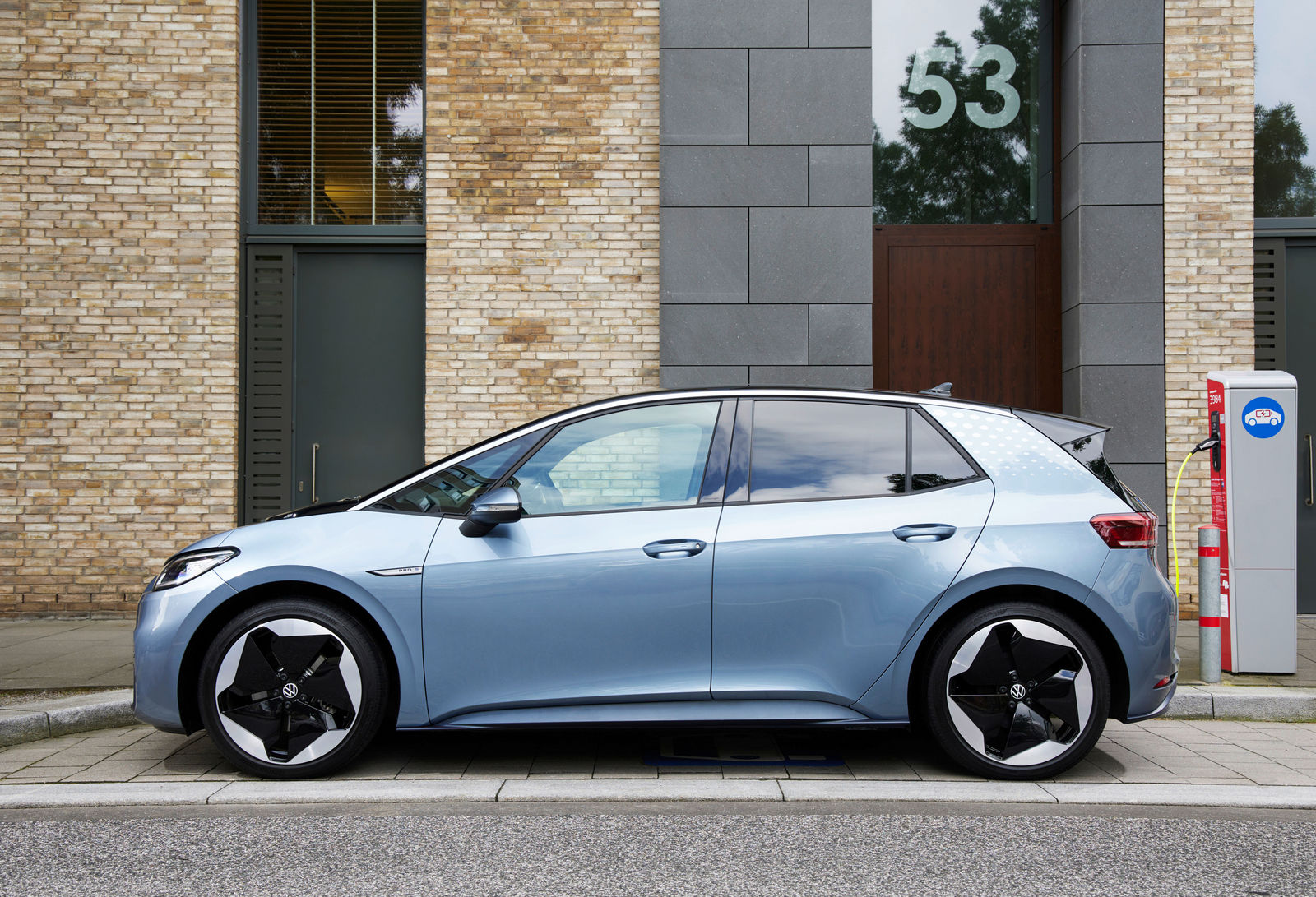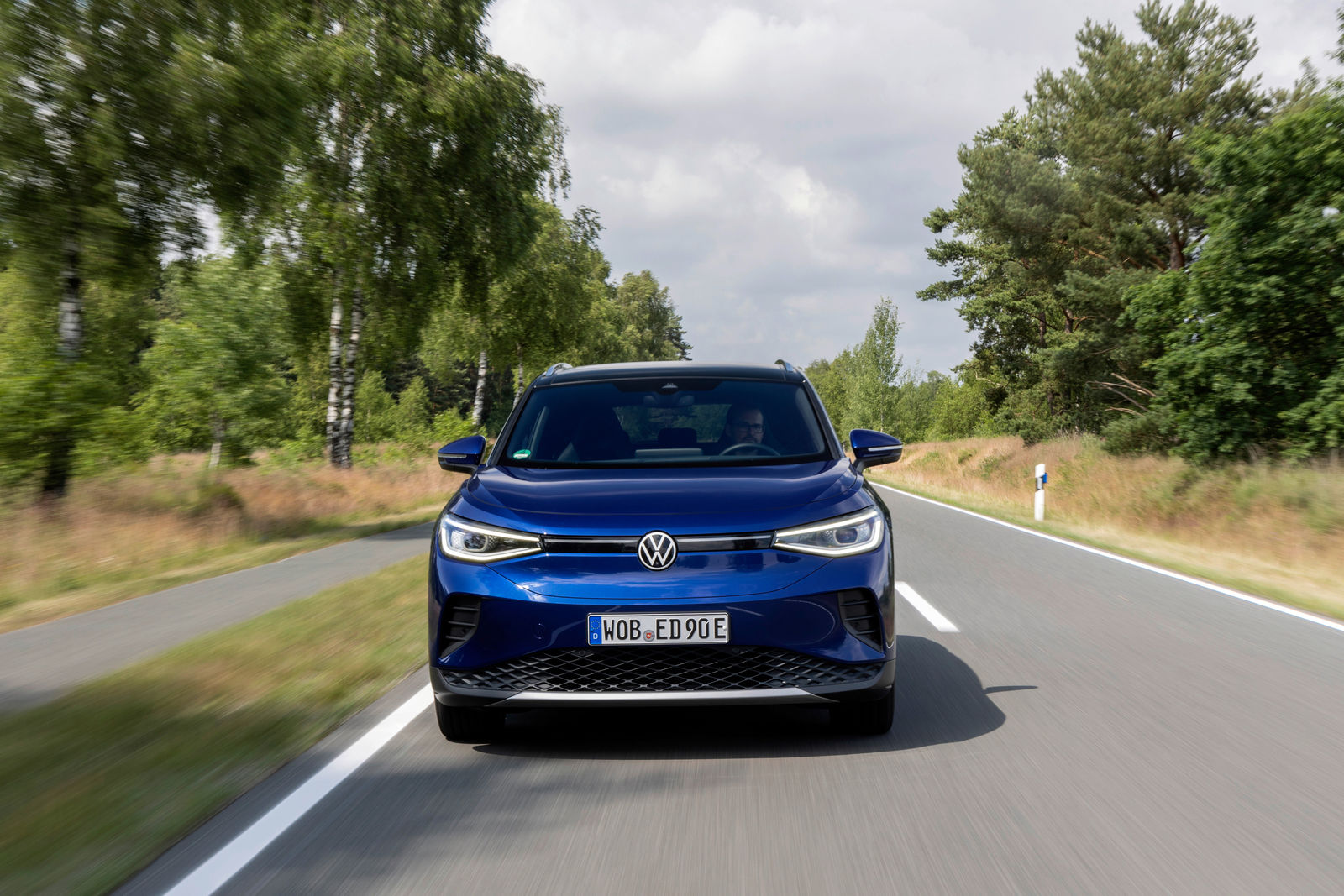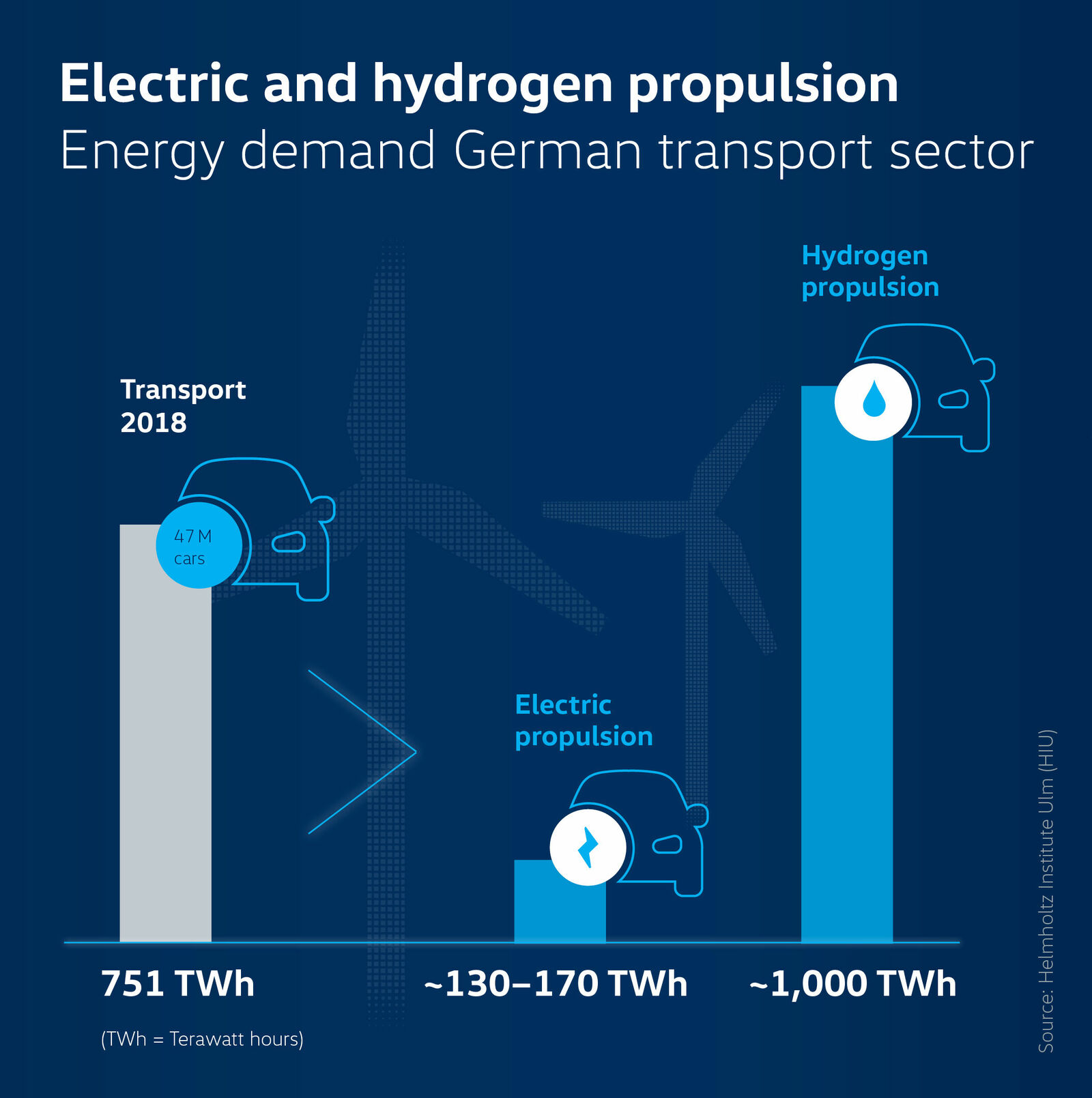1. Electric cars are the most efficient to drive
2. Electric cars are increasing their range
3. Electric cars have the best climate footprint
4. Electric cars protect their surroundings
5. Electric cars facilitate the energy revolution
The drive system question - The future of the car: The five greatest strengths of e-mobility
Does this sound familiar? Friends, colleagues and family members discussing whether electric cars are truly the future. Would other drive systems – particularly hydrogen – not be a better solution? Most scientists believe this question has already been answered. “It has been shown in many studies that electric drive systems are by far the most efficient methods for powering vehicles,” says Prof. Maximilian Fichtner, battery expert at the Karlsruhe Institute of Technology (KIT). We have summarised what you need to know in five points – the great strengths of e-mobility.
1. Electric cars are the most efficient to drive
Of all the drive systems under discussion, electric motors make the most of the energy used. “70 percent of the energy generated is transferred to the wheels,” says KIT expert Fichtner.
The efficiency level of other drive systems:
- hydrogen: 15 to 18 percent
- e-fuels (synthetic fuel): 5 to 8 percent
- modern combustion engines: 20 to 24 percent
The electric drive system benefits from the fact that it works according to a simple principle: electricity, such as from wind power, is stored in the battery and transferred to wheel-mounted electric motors as required. Hydrogen, on the other hand, undergoes a complex production, transport, and conversion process, before it even reaches the fuel cells in the car. This results in high energy losses.
2. Electric cars are increasing their range
3. Electric cars have the best climate footprint
Battery-powered electric cars have the smallest climate footprint of all drive systems, as has been proven in a multitude of scientific studies. One such study was carried out jointly by three renowned research institutes in 2020: the Mercator Research Institute on Global Commons and Climate Change (MCC), the Potsdam Institute for Climate Impact Research (PIK), and the Paul Scherrer Institute (PSI).
The key message: the climate benefits of electric cars have increased considerably in recent years. The reasons for this include advances in battery production, longer battery lives, and the higher proportion of renewable energies in Europe.
A study by the Bundeswehr University Munich, presented in 2022, reached similar conclusions: “It is clear from the results that the comparison of individual emission sections within the entire lifecycle of a product has little meaning if you wish to debate the climate compatibility of different vehicles. For example, battery-powered electric cars have the highest emissions in production, but in the overall analysis including use and recycling, they perform better than classic internal combustion vehicles,” says the university.
In addition, a lifecycle analysis performed by the Think Tank Transport & Environment concluded that a battery-powered electric vehicle manufactured and charged with the average EU electricity mix expected in 2030 would produce 78 per cent fewer emissions over its entire life cycle than a combustion engine car.
